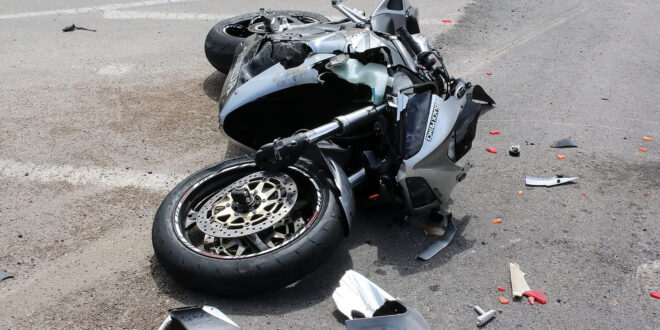Motorcycle accidents take place often. It’s nearly unavoidable when you think about how many of them are out on the road. If you like to ride, you must accept that you’re doing something dangerous and that a car can severely injure you if it hits you.
If a car collides with your motorcycle, and you fly off it and hit your head, you might sustain a brain injury. This is one reason why you must always wear a helmet when you go out riding. It might save your life.
We’ll describe in this article what might happen after you sustain a motorcycle accident brain injury.
You’ll First Need to See a Doctor
As the Hughley Law Firm notes, riding a motorcycle can be one of “the greatest joys in a person’s life.” Some people love the rush that comes from flying down the highway without a care in the world. It can be therapeutic.
However, the danger is always there, and if a car hits you or you lose control because of poor road or weather conditions, you’ll need to ascertain your injury extent. If you’re badly hurt, an ambulance can take you to the hospital, where the doctors will look you over.
If it’s obvious you’re severely injured, the doctors will run some tests on you. They will likely do X-rays and possibly an MRI. That could reveal a brain injury, though it may be some time till they know the full extent.
It’s best if the doctors check you out thoroughly after a motorcycle accident, even if you feel okay. Your adrenaline might still be going, but once it’s gone, you might realize you sustained injuries you didn’t realize at first.
Common Brain Injury Signs
You might feel like you’re okay after a motorcycle accident, so you decide not to go to a hospital. Some people want to avoid hospitals if they don’t have insurance or they have a high-deductible plan.
Later, though, you may have symptoms that indicate you might have a brain injury. You might experience persistent headaches. You may vomit or feel nauseous, or you could have a hard time speaking.
You might feel like you have vertigo or coordination troubles. You also may feel weak or experience tingling in your extremities.
Memory loss is possible. You might have a seizure or convulsions. You also could lose consciousness after the accident.
Any of this can be quite serious, and if you notice these symptoms, you need to get to a hospital immediately. You might not want to pay a large medical bill, but if any of these symptoms are going on, your life could be in danger.
You’ll Need to Figure Out Who Caused the Crash

While you are receiving injury treatment, you’ll also need to figure out who caused the motorcycle accident. If there weren’t any other cars involved, and you lost control on your own, fell off, and hit your head, you probably can’t bring a lawsuit against anyone or expect their insurance to pay for anything.
However, if you feel sure another driver caused the accident, which in turn caused your brain injury, you should expect their insurance to cover your medical bills. If their insurance alone will not cover your bills, that’s when you may need to pursue a lawsuit against them.
In addition to doctor bills, you might have lost wages from not being able to work while you recover. You may have transportation fees to and from the doctor. You might need to hire a babysitter to care for your kids while you seek medical treatment.
If you do bring a lawsuit against the other driver, you can include all of that. You might also include punitive damages, such as pain and suffering. If the other driver behaved recklessly or negligently, you can likely collect those as well if you have a sympathetic jury.
How Might You Prove the Other Driver Caused the Accident?
It will be challenging to prove the other driver caused your accident, which led to your brain injury. You’ll first need to get yourself a personal injury attorney who has handled lawsuits like this before. You need someone experienced who will not neglect any critical detail.
Your lawyer can locate any witnesses. Other drivers might have seen what happened, or perhaps some passing pedestrians did.
If there’s traffic camera footage, that should help prove what took place. Maybe there was a nearby store that can provide some parking lot security camera footage.
Your lawyer might bring in a car crash reconstructionist. This is an expert who can dispute the other driver’s claims if they lie about what took place.
The Lawsuit’s Outcome

The trial’s outcome will mean a great deal to you. If you can get a settlement or a verdict in your favor, you can use that money to pay for all your medical expenses and everything else we just mentioned.
You might also need money to retrofit your home with special accommodations if your brain injury has left you permanently diminished. You might need a hospital-style bed or a wheelchair. You may need handrails or other features.
If you lose the lawsuit, that’s going to be tough for you. You’ll need to cover all your medical expenses yourself. Maybe you’re certain the other driver caused your accident, but there is not enough physical evidence to prove it.
Regardless of whether you can get financial compensation for what happened, you’ll need to live with your brain injury from this point forward. If you sustained what the doctors call a mild concussion, that’s better than a serious TBI. Still, even a “mild” concussion can cause problems for you for months or even years to come.
You will need to figure out what you can and can’t do. You might be able to continue your life with little interruption. If the brain injury is more severe, your life might look and feel very different from this point forward.
 Hi Boox Popular Magazine 2024
Hi Boox Popular Magazine 2024



